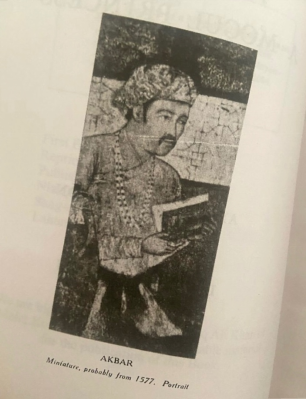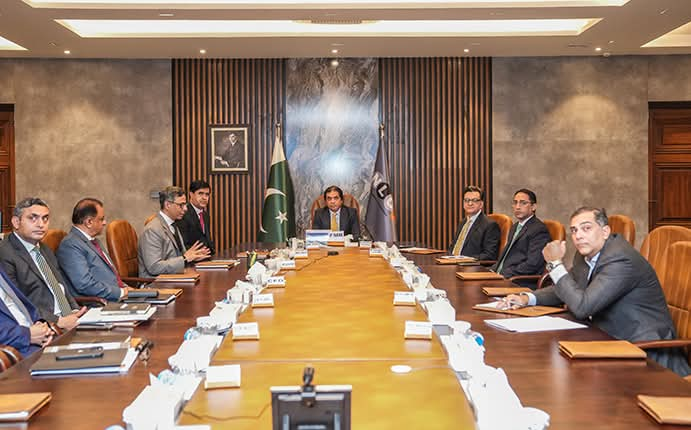

On the noon of Friday, 14 February 1556, the time and date was considered astrologically auspicious, in the small town of Kalanaur on the Ravi river in Punjab, an illiterate and unruly youth of 14, Jalaluddin Muhammad Akbar, was enthroned as the Mughal Emperor on a hastily built platform. Thus began, in a bleak setting, the region of the greatest ruler of Hindustan after Ashok, the celebrated Buddhist Emperor of the 3rd Century BCE.
Akbar, however, was not ready to assume such responsibility, and for the time being left the governance entirely to his guardian, Biram Khan, a polished Persian noble of exceptional ability. For 4 years Biram Khan ruled as the de facto emperor while Akbar remained behind the veil. But despite his seeming disinterest in government, Akbar was all the while observing, learning, and quietly preparing himself for the role that destiny has assigned to him.
By 1560, he was ready. That year Akbar dismissed Biram Khan from his service, and shortly thereafter, in what seemed like a ravenous earth hunger, launched a rapid series of conquests which enlarged the Mughal kingdom in India into a vast subcontinental empire. Entirely fearless, and blessed with phenomenal physical prowess and stamina, he invariably led his army from the front, impetuously plunging in where the fight was the fiercest.
Enthusiastic physicality characterized in his youth. As he grew older, however, his life become more and more austere, and he revealed himself to be a man of considerable cultural interests and insatiable intellectual curiosity. Though as a child he had stubbornly refused to learn to read and write despite the persistent efforts of erudite father, and would remain formally illiterate all his life, he now had his officers read regularly to him from the books in the vast royal library, and in time he became quite a philosopher.
Akbar was eclectic in his taste, liberal in his outlook, and entirely open-minded, without any prejudice of race, religion or culture. In 1564, when he was twenty-two, he took the bold step of abolishing jizya, thus ending a major discrimination against Hindus in his empire. Later, he invited to his court leaders of diverse religions- Hindus, Muslims, Buddists, Jains and Parsis- and with them often held night long discussions. There was also a small group of Jesuit missionaries in his court, and he paid careful attention to their expositions as well, once even attending service in their chapel.
However, what Akbar sought was knowledge, not faith. “He is a man who makes justice the guide of the path of inquiry, and takes from every sect what is consonant with reason”, he held. And it was the practical aspect of knowledge that interested Akbar.
In 1582, when he was forty, Akbar took the revolutionary step -most unusual for a monarch – of founding a syncretic religious fraternity of his own called Din Ilahi (Divine Faith). “For an empire ruled by one head, it is a bad thing to have its people divided among themselves and at variance with one another”, Akbar said, explaining his reason for founding the fraternity. “We ought, therefore, to bring them all; with the great advantage of not losing what is good in any one religion while gaining whatever is better in another. In this way, honour would be rendered to God, peace would be given to the people, and security to the empire”.
Din Ilahi was more an elite socio-political brotherhood than a religious sect in the conventional sense. Its orientation was more towards rationalism than towards faith. It had no pantheon, no theology, no transcendental concerns. Its sole objective was to guide its followers to lead sensible, responsible lives as human beings and citizens. Religious tolerance was its bedrock. Akbar declared, “No one should be interfered with on account of his religion. Anyone should be allowed to go over to any religion he pleases”.
Unfortunately, his doctrine did not survive Akbar. It could not – likes its creator, it was way ahead of its time. When Akbar died, the medieval culture of the age entombed Din Ilahi as well. However, on the whole, Akbar had a singularly fortunate career, and nearly everything in his life worked out perfectly for him – everything, except his own sons. Growing up in the remarkable shadow of the great emperor, the personalities of the princes became stunted and warped. Tow of them drank themselves to death in their youth, and his only surviving son, Jahangir, also become an alcoholic and opium addict.
Akbar in his final years was hardly the emperor, or the man, the world had known. Fortune no longer waited on his pleasure. Aggravations and misfortunes broke his once indomitable spirit, the emperor who never lost any single battle, lost on the account of his sons. His health collapsed and in October 1605, at the age of sixty-three, our beloved Emperor died, after a reign of forty-nine years.
To be continued….







